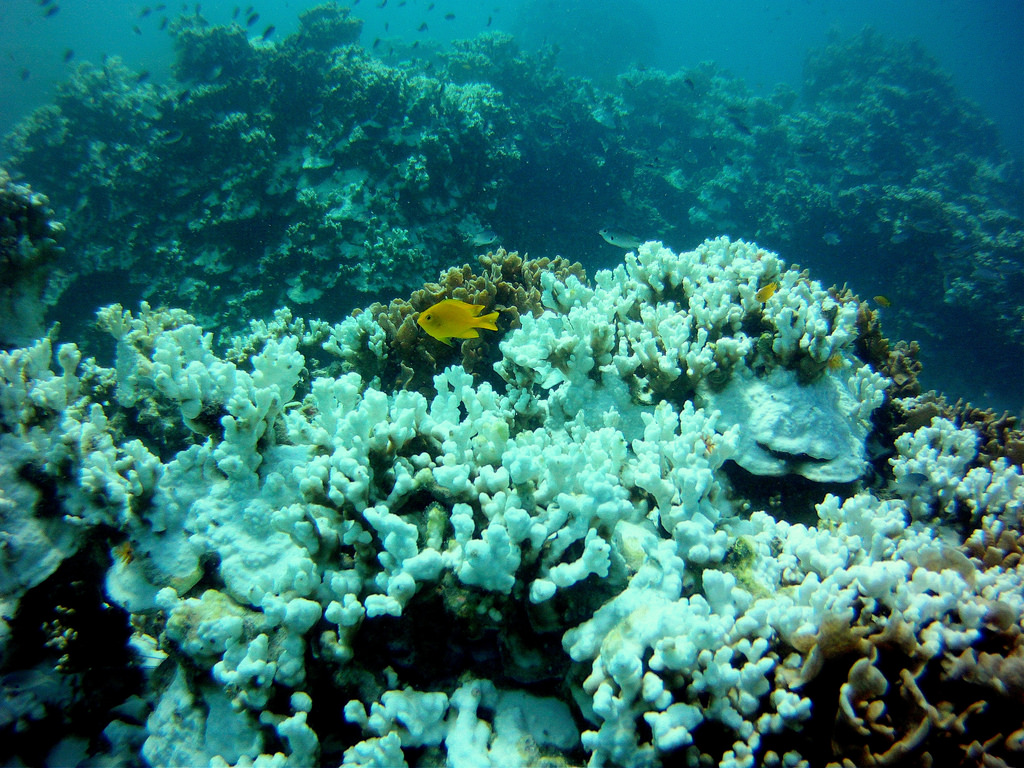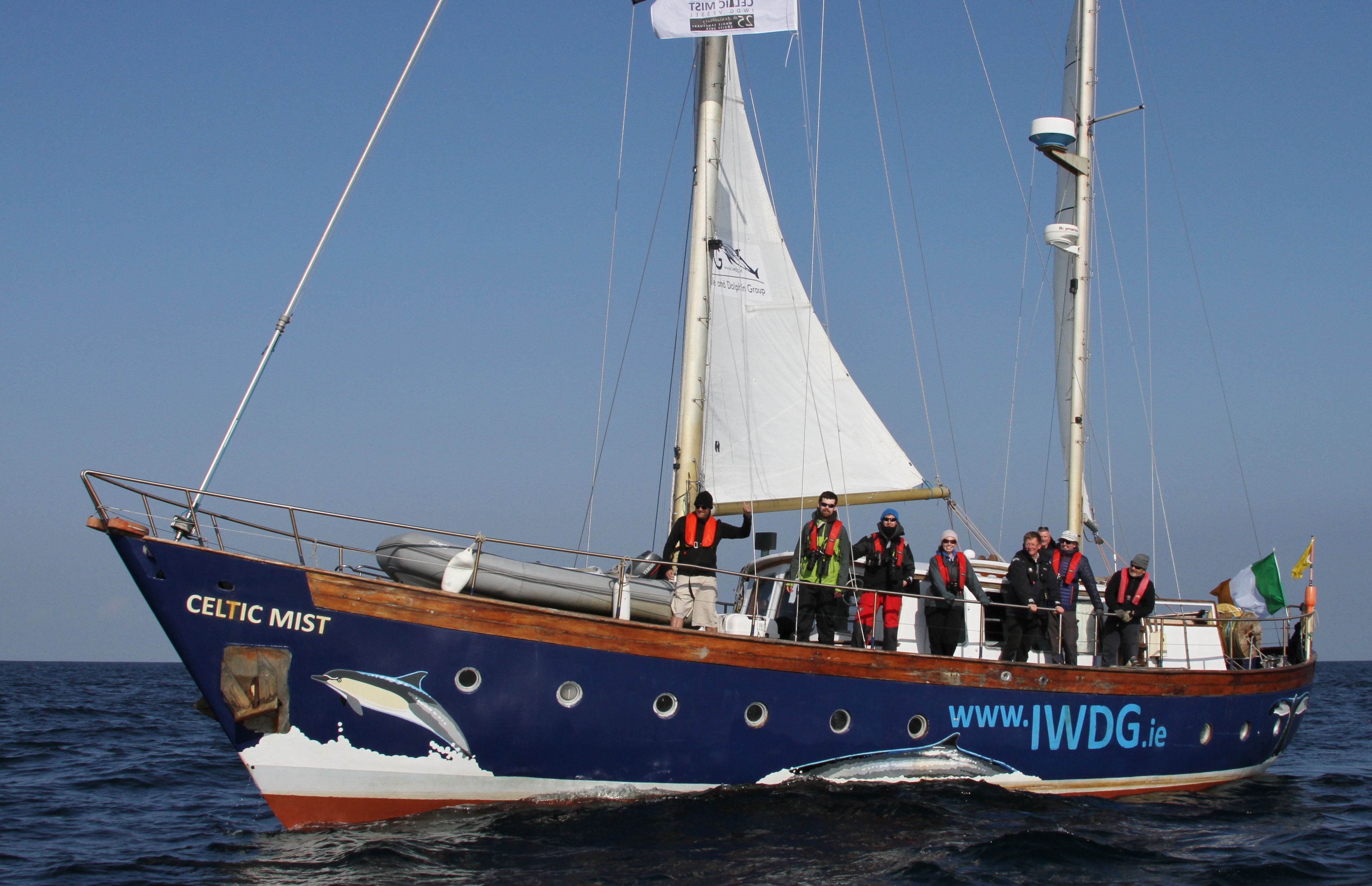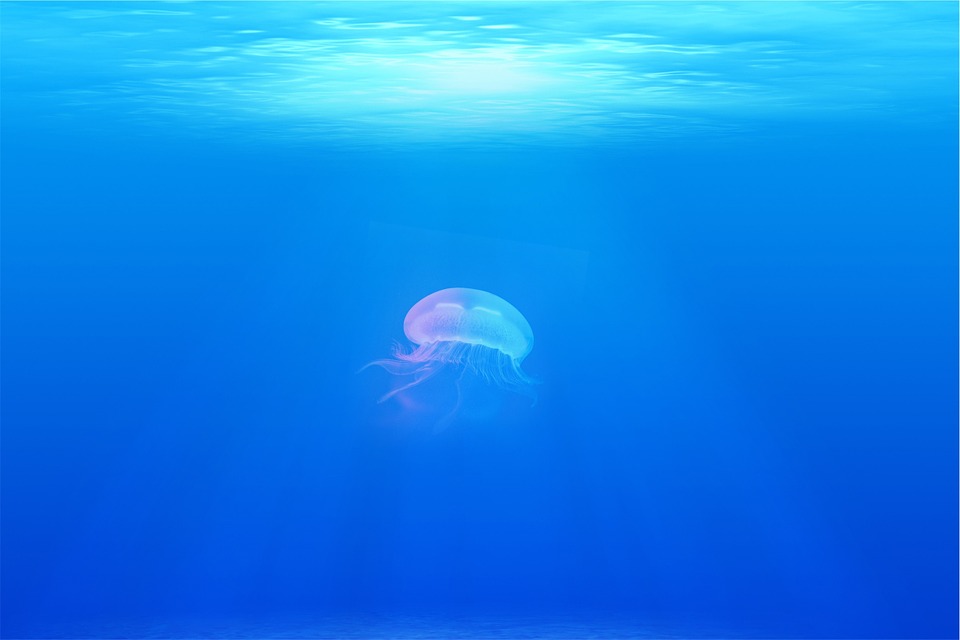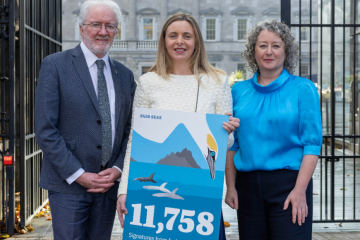Rapid rate of bleaching threatens very existence of coral reefs

January 22nd, 2018
The current rate of coral bleaching is happening faster than in any other era in history, a new study published this month has found.
According to the study in the journal Science, the frequency of the bleaching is undermining the capacity of coral reefs to recover and is threatening their very existence. Coral reefs are the most diverse marine ecosystems on Earth and provide ecosystem services for millions of people.
Coral bleaching occurs where corals expel crucial algae living symbiotically within their tissues as a stress response to increasing ocean temperatures. When bleaching is severe and prolonged, many of the corals die and it can take several decades for new coral to grow back.
The study from the ARC Centre of Excellence for Coral Reef Studies (CoralCoE) measured the bleaching rate at 100 globally distributed Coral Reefs from 1980 to 2016. The results pointed to a significant decline in the time frame between bleaching events, dropping to only six years.
According to the lead author and Director of the ARC Centre of Excellence for Coral Reef Studies, Professor Terry Hughes, the time between bleaching events has diminished five-fold in the past three to four decades. He added that mass bleaching of corals, basically unheard of before the 1980s, have now become the norm as temperatures continue to rise across the world.
Coral Bleaching in the Anthropocene Era
The study claims that our reefs are now entering a new era called the Anthropocene. In this era, coral bleaching is much more frequent in all El Nino-Southern Oscillation phases, expanding the chances of annual bleaching in the following decades.
Co-author of the research, Dr C. Mark Eakin of the National Oceanic and Atmospheric Administration said that we are now seeing the emergence of bleaching during every hot summer.
The Great Barrier Reef, for example, has bleached four times since 1998, including back to back events during 2016 and 2017, leading to significant environmental damage. The researchers hope that the study will lead to stronger actions to reduce the emission of greenhouse gases in Australia, the USA and other countries.
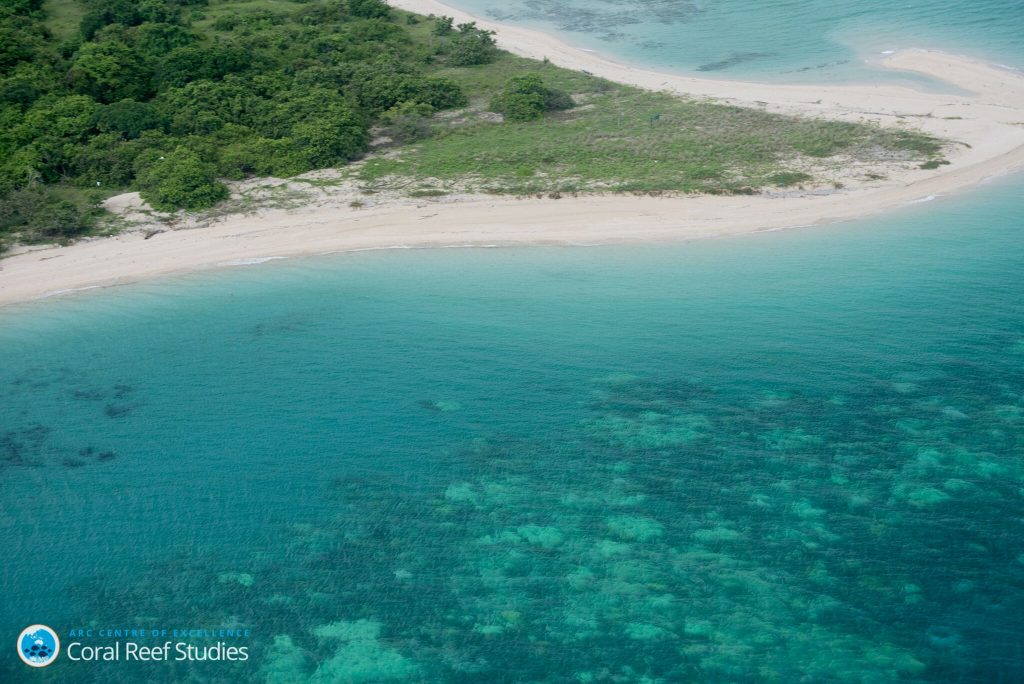
Photo: Prof Terry Hughes
Irish Concerns
Coordinator of Coastwatch, Karin Dubsky said that the findings of the study are of “enormous concern” as coral bleaching will have a “domino effect”, impacting other habitats. “Climate change effects are now gripping our most complex species rich inshore waters,” she warned.
She added: “Another keystone species – kelp – was also recorded as disappearing along more than 100 miles of Australian shore in the heat wave periods of 2011–14 and even when waters cooled in 2015 and 2016 there was no recovery.”
Ms Dubsky said that she has measured temperatures of up to 30 degrees Celsius in estuarine intertidal muds in east and Southeast coast bays and estuaries in Ireland during heat waves over the last decade.
“Typically that is on days when cockles and other large mollusks rose out of the mud and then either died or were easy prey to predators,” she added. “Coastwatch is now planning to pilot a wider citizen science temperature recording trial in several countries in 2018.”
[x_author title=”About the Author”]
